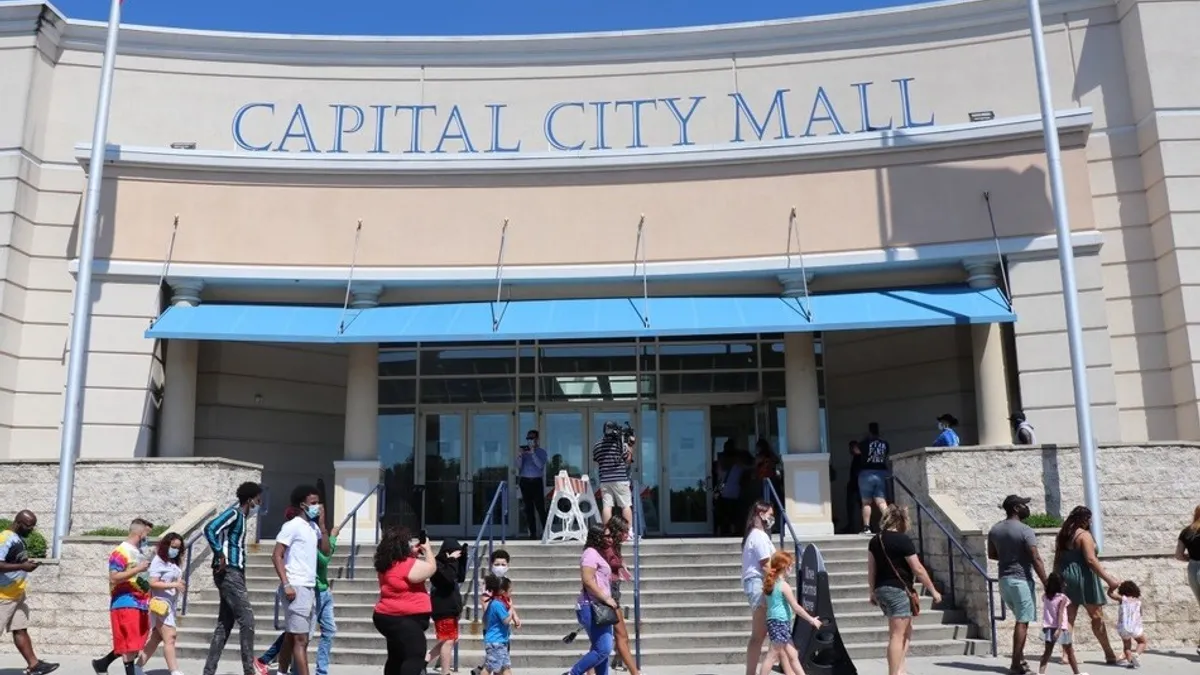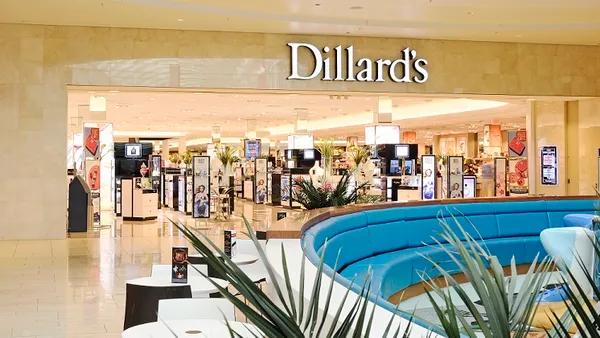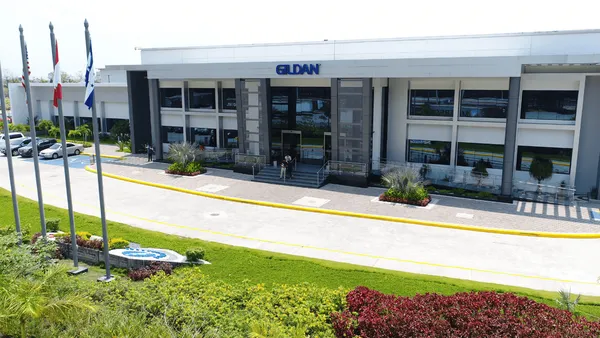Dive Brief:
- Mall owner and operator PREIT has received notice of "alleged events of default" from Wells Fargo on a term loan, according to a securities filing from Friday.
- The notice follows an agreement struck earlier in October with 80% of PREIT's bank lenders to restructure the real estate company's debt. PREIT said then that it would continue negotiating with holdout lenders, and that it may have to file for Chapter 11 if it didn't win more support.
- By not filing for bankruptcy by Oct. 18, PREIT breached its restructuring agreement and defaulted, in Wells' view, according to PREIT's filing. The company said it told Wells Fargo that it disputed the bank's "characterization of the situation" and that "no breach of the RSA or event of default" has occured.
Dive Insight:
The continuing COVID-19 crisis has exposed many of the vulnerabilities among mall operators along with retailers. The difficulties of landlords is a reminder of how close-knit and interdependent the retail ecosystem is.
When malls and stores shuttered this spring, retailers, desperate to preserve cash, skipped or reduced their rent in large numbers. Some of that was by mutual agreement, some of it not. And many retailers are still paying reduced rent even with their stores open. Nordstrom, as one example, told landlords in July to expect just half their rent through January 2021, Retail Dive reported earlier this year.
Of course, landlords have their own bills to pay, and the rent defaults and postponements, not to mention store closures and retail bankruptcies, have reverberated through the REIT (real estate investment trust) world. Through the second quarter, PREIT had received 53% of due rent payments, which was actually slightly above the average for mall REITs, according to Jefferies data.
Another mall landlord, CBL & Associates Properties, is essentially slated to file for bankruptcy in the coming weeks after it missed bond payments earlier this year. COVID-19 disruption has exacerbated CBL's troubles, but, like many retailers that filed this year, the B-mall operator has long been suffering as the industry reshapes around discount and online retail, among other forces.
As for PREIT, its Q2 revenue was down around 30% year over year. Much of that can be attributed to the COVID-19 crisis. But going into this year, PREIT's revenue had fallen for each of the past five years, as major anchors like Sears, J.C. Penney and Macy's have closed stores and mall retail in general has retrenched. PREIT has responded by trying to exit Class B malls for their better Class A counterparts.
"Long before the COVID-19 pandemic hit, we began taking meaningful actions to enhance the financial and operational health of the business," PREIT CEO Joseph Coradino said in a statement when announcing its deal with lenders this month. That included asset sales, repositioning anchors, diversifying tenants, increasing mass-market offerings and "minimiz[ing] our exposure to underperforming assets."
COVID-19 has accelerated many of the changes in retail, which in turn has accelerated financial strains and the need to revamp both retail and real estate businesses.













